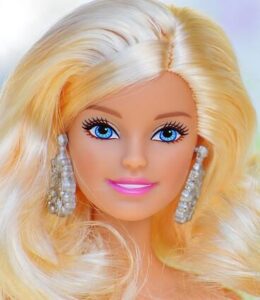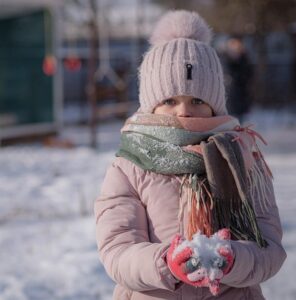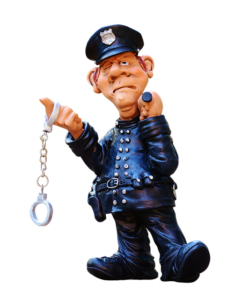Showing Off

Entrepreneurs (and if we want to be published, we writers are all entrepreneurs aren’t we?) are often told, “Face your fear, get over yourself, just do it.”
But it sometimes helps to look at the fear and figure out exactly what it is that we’re afraid of.
Recently, I was challenged to post some of my own memoir pieces, short stories, here on my blog — in particular, a story about my short-lived career as a shoplifter at age 6.
Immediately, I felt reluctant. I didn’t want to, not because I thought it wasn’t any good, but because I didn’t want to show off.
Which is a little weird, when I think about it.
Our generation, the Boomers, grew up in a time when it was considered poor taste to flaunt yourself, to blow your own horn. Especially women, who were taught to be receptive, submissive and not to have ideas that were too radical. And especially not to talk about our ideas or opinions as being equally worthy of consideration as those of men.
So we ended up feeling unheard.
Just like every other group of marginalized people, we developed an inferiority complex, a victim mindset, because we were not allowed to reach our full, confident potential as creative, productive human beings, regardless of race, colour, or gender.
I suppose nearly everyone feels that way at one time or another — a victim, because of their social, financial or racial status — their political or cultural status, or even their sibling position in a nuclear family. Feeling “less than” is much more common than feeling confident and in charge.
But back to my shoplifting story…

As I said, I didn’t want to be seen as showing off by posting my own work. But I think there’s more to it. Yes, there’s the fear of criticism, ridicule or rejection we all feel as writers, but more than that, I was afraid of letting the world know that I’m less than perfect.
When we write our memoirs, we have to get past this tendency to show the world only our good side. Just like any protagonist in a novel, we have to reveal our flaws and vulnerabilities, because without them, there is no growth and development, there’s no conflict which forces us to face those flaws, and there’s no transformation, which is the point of the vast majority of memoirs.
So, with that in mind, here’s the story of the day I became a juvenile delinquent:
The Little Shoplifter
© 2020 Beverley Hanna
When I was a kid, most of the toys we had were pretty basic, the kinds of things our parents could afford or make. This was a time before television, the internet and media advertising bombarded us at every turn with enticing offers of things we can’t afford and don’t need. Kids spent all day every day in all kinds of weather, out of doors, willingly inventing their own games and pursuits, needing little or no equipment to keep themselves satisfied, happy and well occupied for hours on end. We were healthy, happy, and imaginative. We didn’t want or need all the tech devices or plastic creations that kids today consider to be life’s essentials.

That said, there was one toy I coveted above all others. It was a Barbie-doll knock-off called Cindy. I wanted that doll with all the yearning in my six-year-old soul, and I was determined to have it.
My dolly lay on a shelf in Edwards’ store basement, just below and to the right of the stairs leading to the lower level. Nowadays, that store is a TD bank, and the basement is now a series of low-rent offices and shops reached by an outside entrance, entirely separate from the bank. But then, oh, back then, Edwards’ Store was the epicentre of my desires.
Billed as “Edwards of Midland, with 14 departments of specialized service, the finest department store north of Toronto, Edwards’ was the place where we went once a week to pick up a wide variety of items needed at home — kitchenware, crockery, glassware. Clothing and other items of daily necessity were available. Edwards’ was the high-end department store in our little town, and downstairs, along with the souvenirs and “bargain basement” items, was where the toys were housed. This was my mecca, my nirvana, and, for a child, the next best thing to heaven.
At that time, my allowance was, I believe, five cents a week. Possibly ten, but certainly an impossibly long way from the twenty-nine cents marked on the tag attached to Cindy’s sparkly dress. I wanted that doll so badly I could practically taste it. She had long, blonde hair, like me, and she was skinny, like me. She was a veritable mini-me, and I hadn’t the shadow of a doubt that, ultimately, she’d be mine.
The first time I saw Cindy, one winter day in 1954, my mother and I were shopping in Edwards’ basement for boring household items. I had already learned that money was tight in our family, and I knew better than to ask, but this was an exceptional situation. I simply had to have that dolly, so I gave it my best shot and begged. My poor mother did her best to explain that the toy was overpriced, unnecessary and not in the budget, but needless to say, I remained unconvinced.
So I devised a plan. Simple. I’d steal her. If found out, I’d lie, telling Mum that the nice man at the store let me have my Cindy for the amount of allowance I had in my possession. This had the added benefit of letting me have both the doll and my allowance. Win-win.

In our town, in the snow belt in the lee of the Great Lakes, it was necessary to bundle up against the weather in winter, so I had on my bulky overcoat, scarf and galoshes, with my mittens tucked in my coat pocket. As soon as Mum’s back was turned, I sidled over to the shelf, reached up, grabbed the doll, and slipped her into the sleeve of my coat. Then I put on my mittens and slid Cindy’s feet into my left mitt, so she wouldn’t fall out.
Perhaps my timing could have been better, as we stayed in the store for another twenty minutes. By the time we left to go home, I was sweating as much from nerves as I was from overheating, but as soon as we hit the chill air, I could breathe again. I don’t recall what Mum said about the dolly after that, but I’m sure she apologized at least once for not buying the doll for me. It was all I could do not to confess. Even at such a tender age, I knew right from wrong. What I was doing wasn’t right.
The moment we got home, I charged up to my room, where I hid the doll in the bottom of my chest of drawers. I would play with her later, after lights-out, once Mum forgot about my request. Then I went back downstairs and removed my outerwear and rubber boots, hoping no one would notice the melted snow on the stairs.
Fortunately, nobody did, and for that day and the next, all was well. I went about my regular routine of school and play, with no one the wiser, but my allowance was burning a hole in my pocket and I wanted to spend it. I knew just what I’d buy with my ill-gotten gains. I would stop at the corner store for some blackballs and strawberry twists on the way to school the following day.
I was so very careful. I had to keep my plans a secret, ‘cause Mum knew how much the doll had cost and if she discovered my ruse and suspected there was something off about my prepared story, still, she had no proof.
When it was time to leave for school, I kept my pennies clutched in my sweaty palm, encased in my mitten. Just as I was about to go out the door, Mum stopped me to adjust my scarf. That’s when two of the coins clinked together.
“What have you got there?” she asked.
“Nothing,” I mumbled.
“Let me see.”
Uh oh — the jig was up. I took off my mitten and showed her the coins as the whole story came out. I was exposed — revealed as a six-year-old shoplifter. A thief. A criminal! Mum’s disappointment in me was excruciating. We marched upstairs, where I unearthed Cindy from the bottom drawer of my dresser. Mum told me I still had to go to school, but as soon as I got home, we were going back to the store where I would have to return the doll and apologize to Mr. Edwards. My punishment would be up to him.
All that day, I agonized over the coming trial. It was one of the worst days of my young life and I’ve never forgotten my overwhelming guilt at the deception. Normally a good student, I couldn’t concentrate on my lessons. It was all I could do not to run away, but it was cold out, and I couldn’t think of anywhere to go where I wouldn’t be discovered and delivered up to justice.
Finally, the school day was over and it was time to face the music. Slowly, reluctantly, I trudged home through the blowing snow, eking out every second of extra time. Who knew what would await me on my arrival?

When I got home, my mother was already dressed for the outdoors and waiting for me. She took my hand, and we walked downtown to Edwards’ Store. I suspect that Mum had probably called the manager ahead of time, so he’d have time to prepare. All I knew was that I would be going to jail for my transgression, and the whole way there, my heart was in my throat. I didn’t want to go to jail, and I didn’t want to face Mr. Edwards and confess my sin, but I had no choice.
By the time we arrived, I was a sodden, tearful mess. Mum asked the sales clerk for Mr. Edwards, and when he arrived, he took us into his office and closed the door. There, I had to tell the story all over again.
I no longer remember what he said. It’s possible the police were mentioned and I suspect both he and my mother had a hard time keeping a straight face, but I do recall giving a heartfelt promise that I would never, ever do such a thing again. I’d learned my lesson. Scarred for life, but I knew better than to try such a stunt again.
Lesson learned — Actions have consequences. Cheating, dishonesty, while satisfying in the short term, are just not worth the damage to one’s inherent sense of integrity. And for the most part, I’ve been scrupulously honest for most of my life. Occasionally, this honesty’s got me in trouble for one reason or another, but my mother’s actions made me a better person and I’m not sorry for the experience.
Today, nearly seventy years later, in a new and different age when telephone and internet scams, political double-dealing, fake news, bullying and personal disregard for others have become the norm, this outlook seems old-fashioned and outdated, but you know what? I can sleep at night, knowing I am not a cheat, a liar, or a thief.
Thanks, Mum, for the tough love. It worked.
And thank you, for reading. Without you, my readers, I would not have gained the courage to explore some of these sometimes painful topics.
I hope you will take a page from my book and do the same. Your own readers (and your memoirs) will thank you.
Happy Writing!

Beverley Hanna
Trained as an artist in the late 1960’s and early 1970’s, I was one of the first creatives to be employed in the computer graphics industry in Toronto during the early 1980’s. For several years, I exhibited my animal portraiture in Canada and the U.S. but when my parents needed care, I began writing as a way to stay close to them. I’ve been writing ever since. I run a highly successful local writer’s circle, teaching the craft and techniques of good writing. Many of my students have gone on to publish works of their own. I create courses aimed at seniors who wish to write memoirs, with a focus on the psychology of creatives and the alleviation of procrastination and writer's block.
